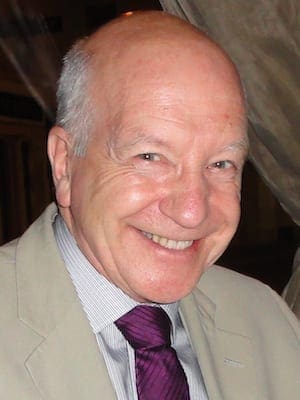More and more I am convinced that Christian witness today requires that followers of Jesus speak with linguistic integrity, resisting the lies, half-truths, redefinitions, propaganda and semantic erosion of contemporary political and social discourse.
A number of key terms, essential for intelligent and constructive political debate, have been hijacked in the United Kingdom and, I imagine, other nations around the world. These include:
1. Immigrant: Increasingly used pejoratively to raise the threat level to “our way of life” by those we consider “other.”
2. Welfare: Redefined in the now laughably ironic government pie charts showing the alleged percentage of taxes spent on social care and what used to be called social security.
3. Benefits: A word now heard by many as the first word in the sound bites about benefit cheats and benefit scroungers.
4. Security: Often now linked with the word “terror,” and together providing a rationale for increasing surveillance in our society, intrusion into personal privacy and suspicion of the stranger, those “others” who make their homes around us.
Not for a second am I saying that there are no cases of undocumented immigration, welfare tourism, benefit fraud and security threat.
It is how these realities are exploited to justify policies and attitudes that, if they continue unchecked, inevitably become deeply corrosive of the common good.
They are toxic for public discourse and dangerous in creating social attitudes and dispositions, which are founded on suspicion not trust and ruthless regulation rather than responsible discretion.
The way these words are being used by politicians, we are educating our society into mistrust of the stranger, resentment of the vulnerable as well as fear of social change, cultural newness and human diversity.
These three processes are essentials for the health of a humane and open society in which people can flourish.
Of course, it may be that there are some sections of our population who think the time for a humane and open society is not now, if ever.
But human flourishing presupposes growth, fruitfulness, new seeds of possibility, the risk of the seed dying and the hope of it propagating and bearing fruit tenfold and a hundredfold.
That brings me back to an ethic of language, and the possibility of Christian witness as the redeeming of words, the reclaiming of a vocabulary that implies generosity to the stranger, compassion to the vulnerable and responsibility toward the poor.
Such redemptive language will have to be to the point, in the face of plain-talking nastiness, confronting and denying the discourse of fear, resentment and injustice.
We must differentiate between the discourse of deceit and scapegoat explanations, and the discourse of truthful words and friendly welcome. Christians must speak out against the politics of resentment, rejection and division.
The popular appeal at the ballot box of “plain language” diagnoses of what is wrong with our society and how it can be put right by a particular set of policies is clear evidence that eventually regular irrigation of peoples’ fears, worries and resentments produces bitter fruit.
Water the seeds of malign discontent and don’t be surprised at the height or toxicity of giant hogweed that results.
Instead, Christians are instructed, “Let your speech be always with grace, seasoned with salt, that ye may know how ye ought to answer everyone” (Colossians 4:6).
The immediacy of communication through social media makes it possible to disseminate and multiply words in ways unprecedented in our history.
Not for nothing did Jesus liken his disciples to salt, whose influence for good, in healing, sterilizing and fertilizing, is out of all proportion to quantity.
Jesus also said every word will have to be weighed and accounted for some day.
When that day comes, I, for one, hope that some of the most weighty words I have spoken have been words of contradiction, spoken in the face of those whose view of the world has no space for redemption, forgiveness, compassion, hospitality, love, hope, peace, goodness and the list could go on.
Some “semantic replacement therapy” is needed in the political discourse present in far too many nations, and Christians have nothing better to do than start speaking these words.
These are the words that challenge precisely and prophetically the attitudes, policies and ideologies of closure, exclusion, alienation and isolation.
Redemption, forgiveness, compassion, hospitality, love, hope, peace, justice and goodness. Speak them. Live them. Be them.
 James Gordon is part-time minister of Montrose Baptist Church in Angus, Scotland, and the former principal of the Scottish Baptist College. He is on the advisory board of the Centre for Ministry Studies, University of Aberdeen, and continues as an occasional lecturer on practical theology and areas of ministry. A longer version of this article first appeared on his blog, Living Wittily, and is used with permission.
James Gordon is part-time minister of Montrose Baptist Church in Angus, Scotland, and the former principal of the Scottish Baptist College. He is on the advisory board of the Centre for Ministry Studies, University of Aberdeen, and continues as an occasional lecturer on practical theology and areas of ministry. A longer version of this article first appeared on his blog, Living Wittily, and is used with permission.
Part-time minister of Montrose Baptist Church in Angus, Scotland, and the former principal of the Scottish Baptist College. He is on the advisory board of the Centre for Ministry Studies, University of Aberdeen, and is honorary lecturer in the School of Divinity, History and Philosophy.

